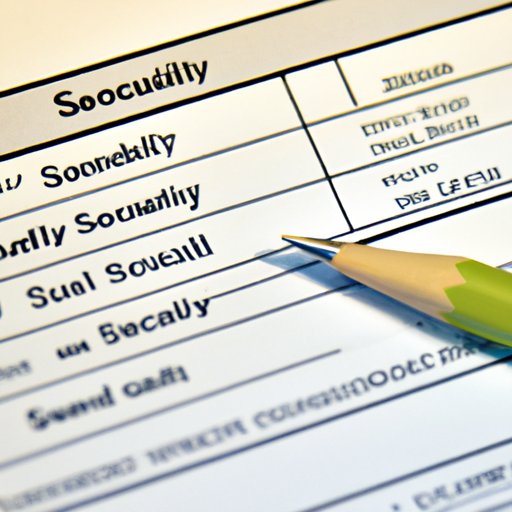
Introduction
When it comes to managing your finances, it’s essential to know how much money you should have in your checking account. A checking account is the hub of your financial life, and it’s where you deposit your paycheck, pay bills, and withdraw cash. In this article, we’ll discuss several factors to consider when determining how much money you should keep in your checking account.
Determine Your Expenses
The first step in determining how much you should keep in your checking account is to identify your monthly expenses. Start by tracking how much you spend on necessary expenses such as housing, utilities, food, and transportation. After identifying these expenses, estimate how much you typically spend on additional discretionary expenses such as entertainment or shopping.
By tracking your expenses over a few months, you’ll likely see some variation in your spending. Be sure to account for these fluctuations when determining how much money to keep in your checking account. For example, if you know that you have a higher electric bill in the summer months due to air conditioning, adjust accordingly.
Consider Your Income
Keeping track of your income is just as important as your expenses. Your income can fluctuate throughout the year due to seasonal work or commission-based jobs. It’s essential to ensure that your checking account always has enough money to cover your expenses during lower earning months.
To achieve this, consider setting up an automatic transfer from your savings account to your checking account during months when you earn less. This will help you avoid overdraft fees and ensure that your bills get paid on time.
Track Your Spending
Tracking your spending regularly can also help you determine how much money to keep in your checking account. Use a budgeting app or spreadsheet to categorize your expenses and track your spending. This will help you identify areas where you might be overspending.
If you find that you’re frequently overspending in a particular category, evaluate your budget and adjust it accordingly. For example, if you’re consistently overspending on dining out, consider reducing your budget for that category and cooking at home more frequently.
Create an Emergency Fund
Building an emergency fund is crucial for managing your finances responsibly. Experts suggest having three to six months’ worth of expenses saved in an emergency fund. It may seem daunting, but each small contribution can add up over time.
One way to keep your emergency fund in your checking account is to create a separate account within your bank specifically dedicated to emergency savings. Set up an automatic transfer from your checking account to this account each month. This will help you build your emergency savings while keeping it easily accessible in your checking account.
Avoid Overdraft Fees
Having a minimum balance in your checking account is an excellent way to avoid overdraft fees. Check with your bank to determine their specific minimum balance requirements.
To maintain this balance, consider setting up a budget, tracking your spending, and automating your savings contributions. By doing so, you’ll ensure that you have enough money in your account to avoid overdraft fees and keep your finances in check.
Think About Your Goals
It’s also essential to consider your financial goals when determining how much money to keep in your checking account. Keep track of what you’re saving for and how much you need to save to reach your goals.
If you have specific financial goals in mind, such as saving for a house or paying off student loans, consider adjusting your budget and savings contributions accordingly. By doing so, you’ll be taking concrete steps towards achieving your financial goals.
Conclusion
Knowing how much money to keep in your checking account is crucial for managing your finances responsibly. By determining your expenses, considering your income, tracking your spending, building an emergency fund, avoiding overdraft fees, and thinking about your goals, you’ll be well on your way to financial success.
Start implementing the tips discussed in this article and make changes to your finances today. Remember, every small step counts. Keep your checking account in check and feel the power of financial responsibility.





